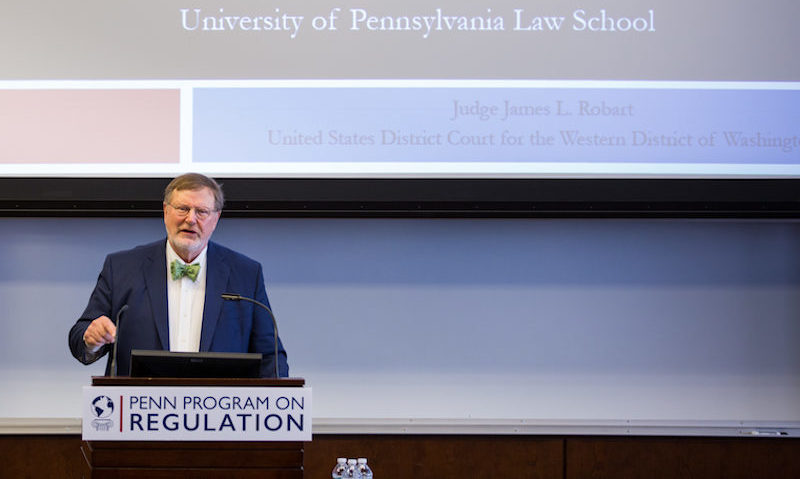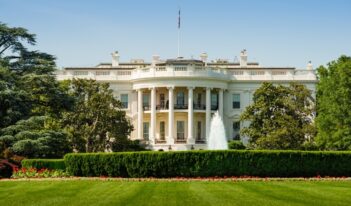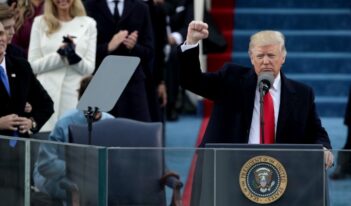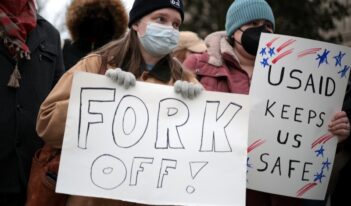
Federal judge discusses the Trump Administration’s original travel ban.
The U.S. Supreme Court is scheduled to rule on the third iteration of the Trump Administration’s travel ban by the end of the summer. Despite the changes to the most recent version of the travel ban, its substance raises many of the same legal questions as the original order President Donald Trump issued during his first week in office.
Speaking at an event hosted earlier this spring at the University of Pennsylvania Law School, Judge James L. Robart, who issued the first nationwide order blocking enforcement of the Trump Administration’s original ban, discussed the legal issues in the case and offered his perspective on the legality of such executive action.
Executive Order 13,769—one of President Trump’s first orders—made headlines when it temporarily suspended the entry of aliens into the United States from a list of seven countries, paused the refugee admissions program and indefinitely halted the entry of all refugees from Syria. The executive order also gave the Secretaries of State and Homeland Security discretion to make case-by-case exceptions for religious minorities in the seven countries covered by the ban—exceptions that would have applied to Christians in these Muslim-majority countries.
States such as Washington and Hawaii quickly filed lawsuits, arguing that the ban would cause harm to their residents and educational institutions. Against the backdrop of protests at airports around the country and extensive news coverage of the ban’s impact on foreign travel, Judge Robart granted a request by the state of Washington and ordered a nationwide halt to the enforcement of the travel ban.
In appealing Judge Robart’s order, the federal government took the position that President Trump’s executive order was unreviewable, and the government argued that no court had authority to review any action taken by a President that is related to national security and immigration. The U.S. Court of Appeals for the Ninth Circuit rejected this argument.
Later, a unanimous Ninth Circuit panel upheld Judge Robart’s temporary restraining order. The specific executive order at issue in the case, however, was superseded by two subsequent, revised versions of the travel ban issued by President Trump. The third of these bans is currently in the hands of the Supreme Court.
The litigation over the travel ban has raised important questions about constitutional rights. In challenging the initial ban, the state of Washington argued that the executive order violated the Due Process Clause and the First Amendment’s Establishment Clause. Addressing these issues in turn, Judge Robart stated that the due process argument was relatively straightforward. Stopping individuals who had obtained visas and purchased tickets from boarding planes without any notice or opportunity to contest the decision, according to Judge Robart, met the test for likelihood of success on the merits, which authorized the issuance of injunctive relief.
Yet the answers to other constitutional questions, including whether the executive order violated the Establishment Clause, remain less clear. A violation of the Establishment Clause, which forbids the federal government from favoring one religion over another, requires that the government act with intent or motive. Judging these elements proves to be more difficult because it seems to call for peering into the minds of executive officials like the President.
Still, Judge Robart observed that bans like the ones President Trump has adopted are reminiscent of executive actions taken during World War II that targeted Japanese-Americans in the United States. He noted the parallels between the language used to justify Executive Order 9,066 in 1942, which authorized internment camps for Japanese-Americans, and the language used to justify President Trump’s executive orders banning travel by residents of Muslim countries.
The travel ban litigation also presented questions about the correct interpretation of the federal Immigration and Nationality Act. Under this statute, “no person shall receive any preference or priority or be discriminated against…because of the person’s race, sex, nationality, place of birth, or place of residence.” A different section of the same law, however, gives the President the authority to “suspend the entry of all aliens…or impose on the entry of aliens any restrictions he may deem to be appropriate” whenever he finds that the entry of these aliens would be harmful to the interests of the United States.
According to Judge Robart, the inherent conflict between these provisions of the Act—where one seems to provide sweeping presidential authority and the other forbids discrimination—is likely a key battleground in resolving the current litigation challenging the most recent version of the ban.
Apart from the legal issues specific to the travel ban, Judge Robart acknowledged the right to disagree with a ruling, but cautioned against condoning attacks against the judiciary or individual judges. These types of abuses, the judge noted, are harmful because they undermine the judiciary’s legitimacy and, ultimately, the rule of law. In his order blocking the travel ban, Judge Robart emphasized that the judiciary is “but one of three equal branches of our federal government,” but it must ensure “that the actions taken by the other two branches comport with our country’s laws, and more importantly, our Constitution.”
Judge Robart’s lecture was sponsored and organized by the Leo Model Foundation Initiative for Government Service and Public Affairs at the University of Pennsylvania Law School, and was co-sponsored by the Penn Program on Regulation.



